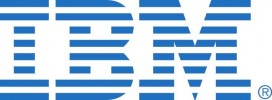Make Sure You Have These 7 Security Gaps Covered 15 Nov 2021
WhiteCanyon, the leading provider of security software and producer of WipeDrive 9, provided this infographic not long back, covering seven security gaps that could lead to disaster. Businesses must keep up to date with their security to keep intruders completely at bay.
But why are these seven factors important when considering data security? And how can a business go about securing them? Well, here’s how:
-
Inadequate Reporting
A lack of comprehensive reporting leads to potential data breaches. If a company doesn’t provide all the details of the original breach, then its true weaknesses cannot be fully identified. This will lead to more problems than the company will want, costing money and time as well as its reputation alongside it.
To properly protect the company, auditable reports are needed. Not only that, but once the weaknesses are made apparent, they can be fixed, and the defence will be a lot more certified. So reporting anything and everything relevant will only help the cause, leading to a solution.
-
Remote Location Risk
Dealing with remote locations can lead to a loss of control on the company’s behalf. When this control is lost, it opens up opportunities for hackers to come and steal data or hold it for ransom for a potential payoff. Financial and reputational costs are at stake here, so minimise any damage.
Dedicated IT staff and appropriate tools are vital here to wipe hardware onsite. Unfortunately, this may not be achievable due to the costs of IT staff that the company may not necessarily have. But to give the company a much better chance of security, this is something that needs considering.
-
Weak Internal Chain Of Custody
If a company has a weak internal chain of custody, it means that they do not collect hardware promptly, have a high touch count or leave computers in unsecured places, for example. If this chain of custody is broken in any way, then vital evidence could be deemed legally worthless.
Being completely diligent, ensuring that this chain of custody is strong and intact can help the company in times of need. Modern software systems updated and protected with the latest security systems can help deter potential criminals from even attempting to steal. Any mistakes will be accounted for.
-
Outsourcing Risk
When using third-party providers for data destruction, the secure data and hardware handled may be done by transient or temporary employees. Therefore, the risk percentage of this data not being appropriately destroyed rises, and the company may be giving hackers a goldmine to work with. Avoid this at all costs!
If this is a growing concern, then destroying the data first-hand using military-grade wiping technology WipeDrive 9 is the way to go. Or partnering with a third-party that has permanent employees and a proven track record of complete data destruction is also an alternative – Global EMEA is the answer.
-
Relying On Encryption
Although encryption technology can be useful for keeping information secure in some circumstances, hackers can still break in and get what they want. Furthermore, even when these encryption technologies are regularly improved, so are the tools hackers use to break in. So relying on encryption can be dangerous.
Therefore, it is important to delete the encryption key to stop this from happening, making access more difficult on the intruder’s end. The data is, however, still on the drive-through, presenting long-term risks instead. Therefore, a more robust system with multiple stages needs implementing to prevent this.
-
Unknown Processes For Data Security
A data security policy needs to be created and followed by everyone at the company. But, if left to a tech wizard, many may be left feeling confused by what to do in a breach. And, when this happens, it will be too late for them to do anything about it.
So look to create one then and ensure each and every single team member knows what to do in order to protect data. This will end up saving the company time, resources and therefore money trying to catch up. Cover all bases and angles.
-
Failure To Audit Internal Processes
The data security policy must have a third party audit the procedures for processing decommissioned computers and drives. Failure to do this will result in fewer insights for the business and the policies being disregarded by employees. This can end in disaster for the company when it comes to a security breach.
Get with the team to get this done efficiently and comprehensively. Then have the third party audit the procedures when possible. This is even just an effective way of keeping up with policies and getting everyone on board with what the business is doing with security here.
Get in touch with Global EMEA today.
At Global EMEA, we provide dedicated services to corporate clients in procurement, configuration, support, maintenance and end-of-life asset management. We are IT experts who understand that businesses want more from their IT. So when it’s time for an asset to retire, we will handle the process in a secure, responsible and environmentally friendly way.
To find out more, visit our website today! Alternatively, give us a call on 0345 340 3105 to speak directly to our team or fill out an enquiry form. We look forward to hearing from you and welcome any potential questions you may possibly have.








